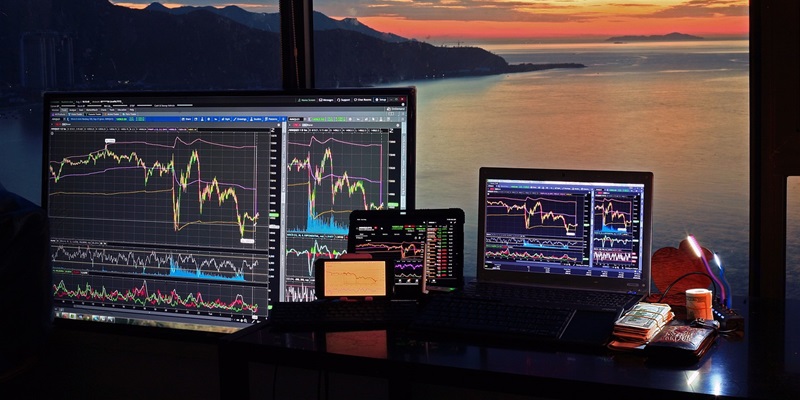The integration of blockchain technology with forex trading has emerged as a groundbreaking development. This innovative technology, originally created for cryptocurrencies like Bitcoin, has proven to have numerous applications beyond digital currencies. With its inherent features of transparency, security, and efficiency, blockchain is reshaping the world of forex trading.
Blockchain’s Transparency and its Impact on Forex Trading
At the core of blockchain technology is its transparency achieved through a chain of blocks, each containing a list of transactions. This transparency not only reduces the risk of fraud but also instills confidence among traders and investors. Unlike traditional centralized systems, where data can be manipulated or altered, blockchain ensures that each transaction is recorded in an unchangeable manner, making it accessible to all participants in the network.
Reducing the Risk of Fraud and Instilling Confidence
One of the significant concerns in forex trading is the risk of fraud. Unscrupulous individuals and entities engage in various fraudulent practices, including unauthorized trades and manipulation of market data. Blockchain addresses these concerns by implementing cryptographic techniques that secure transactions and create an immutable record. By employing advanced algorithms, blockchain verifies and validates each transaction, making it virtually impossible to tamper with the data. This cryptographic security significantly reduces the risk of hacking and fraud, making forex trading more secure and reliable.
Enhanced Security and Reliability in Forex Trading
The integration of blockchain technology in Forex trading brings forth a new level of security and reliability. With the elimination of intermediaries, blockchain decentralizes the process, reducing the risk of human error and manipulation. Additionally, the use of blockchain ensures that traders have access to real-time, transparent, and auditable information, making it easier to make informed decisions. The increased security and reliability provided by blockchain technology attracts more market participants, ultimately benefiting the entire Forex market.
Automation and Facilitation of Transactions through Smart Contracts
Smart contracts, built on blockchain technology, play a vital role in automating and facilitating transactions in Forex trading. These self-executing contracts automatically enforce the terms and conditions agreed upon by the parties involved. With smart contracts, the need for intermediaries is significantly reduced, thereby reducing costs and increasing efficiency. Traders can execute trades and settle transactions seamlessly without relying on third parties, leading to faster and more accurate transactions.
Efficiency of Transaction Processing with Blockchain’s Distributed Nature
Blockchain’s distributed nature ensures that transactions are processed quickly and efficiently. Unlike traditional systems that rely on a centralized clearinghouse for transaction verification and settlement, blockchain allows for a decentralized network of participants to validate transactions. This removes the need for intermediaries, resulting in faster and more cost-effective transaction processing. By leveraging blockchain technology, forex trading becomes more efficient and accessible to a broader range of participants.
Overall Credibility and Benefits of Blockchain Technology in the Forex Market
The transparent nature of blockchain technology not only benefits traders but also enhances the overall credibility of the Forex market. By providing a tamper-proof and auditable record of transactions, blockchain technology creates trust among market participants. This increased credibility attracts more investors and traders, further increasing liquidity in the Forex market. Moreover, the use of blockchain technology ensures that regulatory compliance is upheld, minimizing the risk of illegal activities.
Regulatory Frameworks and Jurisdictions Exploring Blockchain in Forex Trading
Recognizing the potential of blockchain technology in Forex trading, several jurisdictions are actively exploring regulatory frameworks to govern its use. Governments and financial regulators are working towards creating an environment that promotes innovation while ensuring investor protection. By implementing clear guidelines, authorities aim to harness the benefits of blockchain technology while mitigating potential risks and ensuring fair market practices.
The fusion of blockchain technology and Forex represents a paradigm shift in the world of financial trading. The inherent transparency, security, and efficiency provided by blockchain have revolutionized the way Forex trading is conducted. With reduced fraud and increased confidence among traders and investors, blockchain technology has the potential to transform the entire Forex market. As regulatory frameworks continue to evolve, we can expect to see greater adoption of blockchain in Forex trading, paving the way for a more transparent, secure, and accessible financial system.

